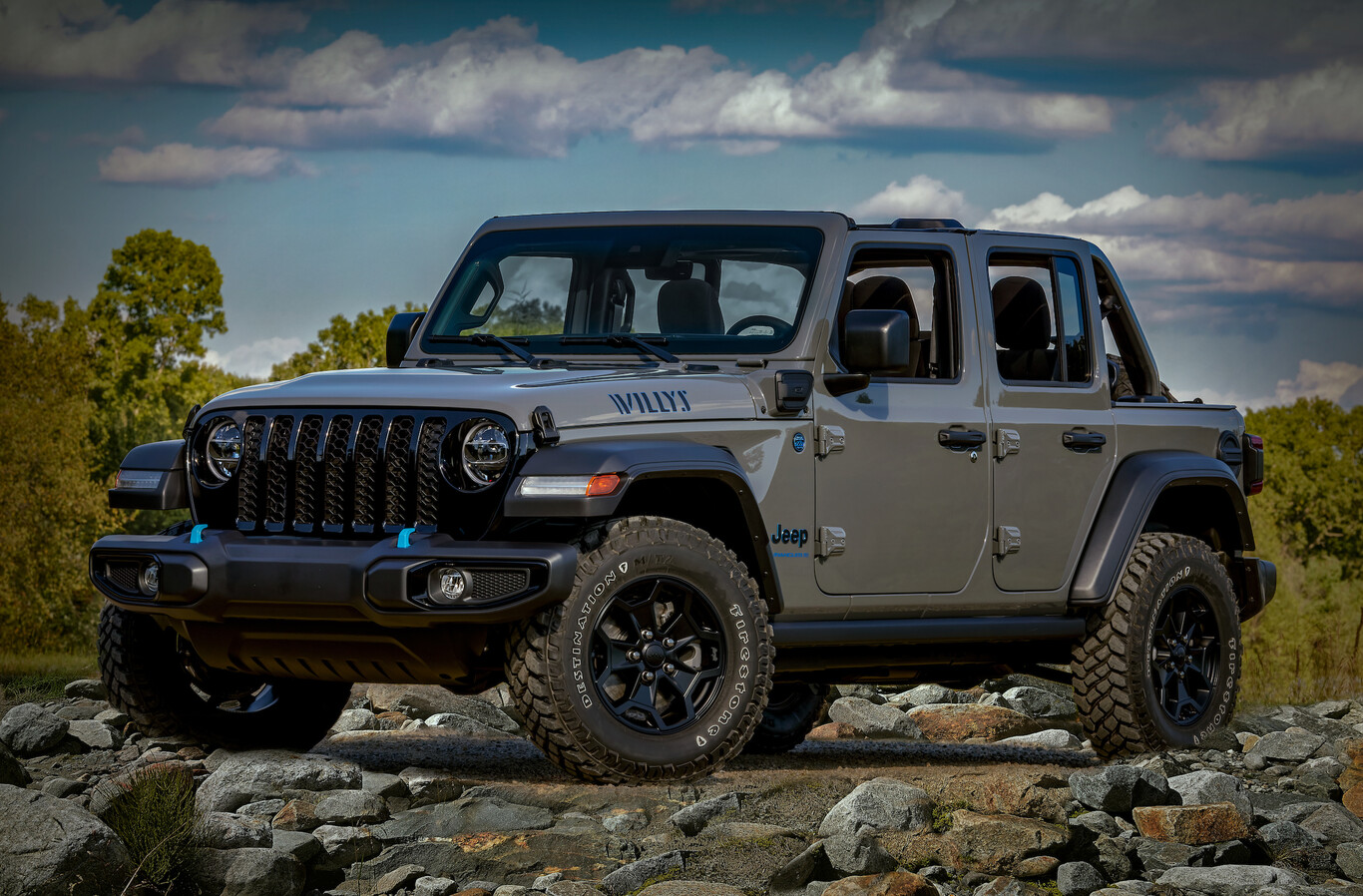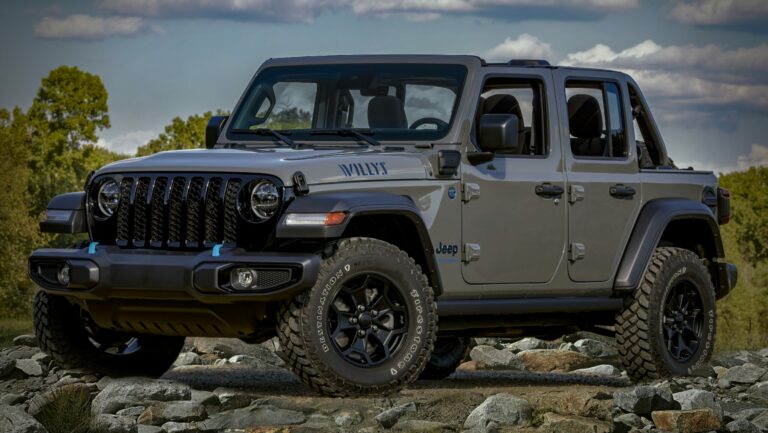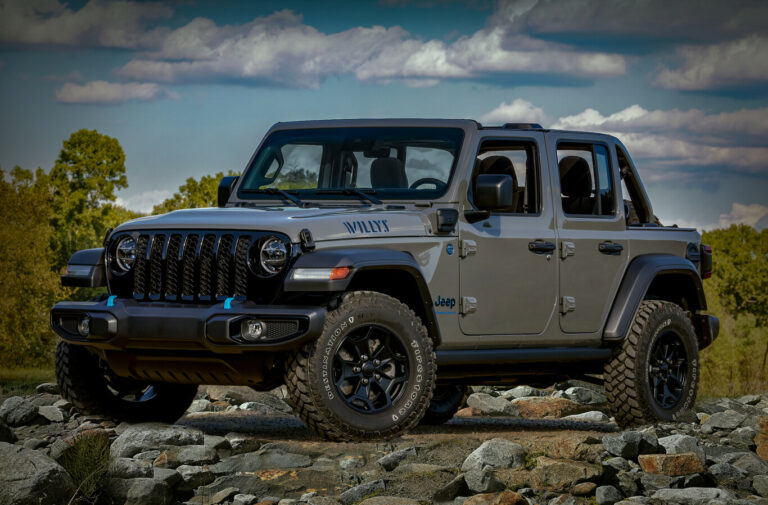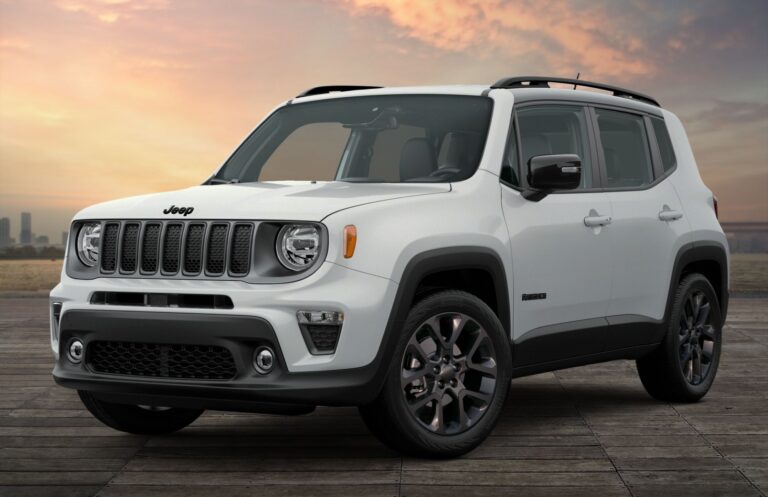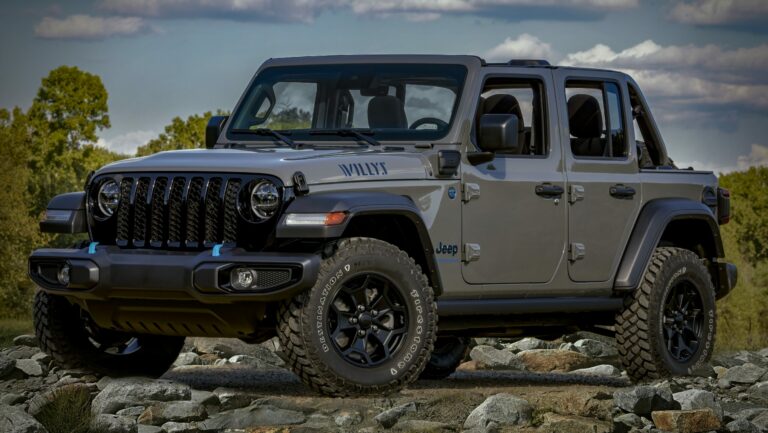Jeep Truck Kit For Sale: Transforming Your Wrangler into a Versatile Pickup
Jeep Truck Kit For Sale: Transforming Your Wrangler into a Versatile Pickup jeeps.truckstrend.com
For decades, the Jeep Wrangler has stood as an icon of off-road capability and open-air adventure. While its legendary design offers unparalleled freedom, many enthusiasts have yearned for the added utility of a pickup truck, combining the Wrangler’s prowess with cargo-carrying capacity. This desire has fueled a vibrant aftermarket industry, giving rise to the "Jeep Truck Kit" – a transformative solution that converts your beloved SUV into a highly capable and uniquely styled pickup.
A Jeep truck kit, at its core, is a specialized aftermarket package designed to replace the rear section of a Jeep Wrangler (typically JK or JL models) with a pickup truck bed and often, a modified rear cab section. This allows owners to retain the iconic front-end styling and off-road heritage of their Jeep while gaining the practical benefits of a bed for hauling gear, tools, or even a dirt bike. The importance of these kits lies in their ability to offer a customized, utilitarian, and truly distinctive vehicle that stands out from the crowd, bridging the gap between an SUV and a pickup without compromising the Jeep spirit.
Jeep Truck Kit For Sale: Transforming Your Wrangler into a Versatile Pickup
What Exactly is a Jeep Truck Kit?
A Jeep truck kit is a comprehensive set of components engineered to convert a Jeep Wrangler into a pickup truck. Unlike simply adding a roof rack or a small cargo carrier, these kits involve significant modifications to the vehicle’s body and, in some cases, its frame. They typically include a new truck bed (either steel or fiberglass), a redesigned rear cab wall (bulkhead), a tailgate, and often new body mounts and inner fender wells. Some more elaborate kits might also provide frame extensions or specific hardtop modifications to integrate seamlessly with the new bed. The aim is to create a factory-like appearance and functionality, giving the impression that the Jeep was always meant to be a truck.
Why Convert Your Jeep into a Truck? The Benefits Unpacked
The decision to convert a Jeep Wrangler into a pickup truck is driven by a blend of practical needs and a desire for unique customization. Here are the compelling benefits:
- Enhanced Utility: The primary advantage is the added cargo capacity. A truck bed allows you to haul dirty gear, building materials, camping equipment, or even an ATV without soiling your interior or being limited by a small trunk space.
- Distinctive Style: A Jeep truck stands out. It combines the unmistakable Jeep front end with the rugged appeal of a pickup, creating a truly unique vehicle that draws attention and reflects your individuality.
- Off-Road Versatility: Unlike many dedicated pickup trucks, a converted Jeep retains its legendary short wheelbase (if not extended) and superior articulation, making it incredibly capable on challenging trails while offering the benefit of cargo space.
- No Compromise on Fun: You still get the removable top and doors, the open-air freedom, and the go-anywhere attitude that defines a Jeep, now with the added functionality of a truck.
- Customization Potential: The conversion itself is a massive customization project, but it also opens doors for further modifications like custom bed racks, integrated toolboxes, or specialized overland setups.

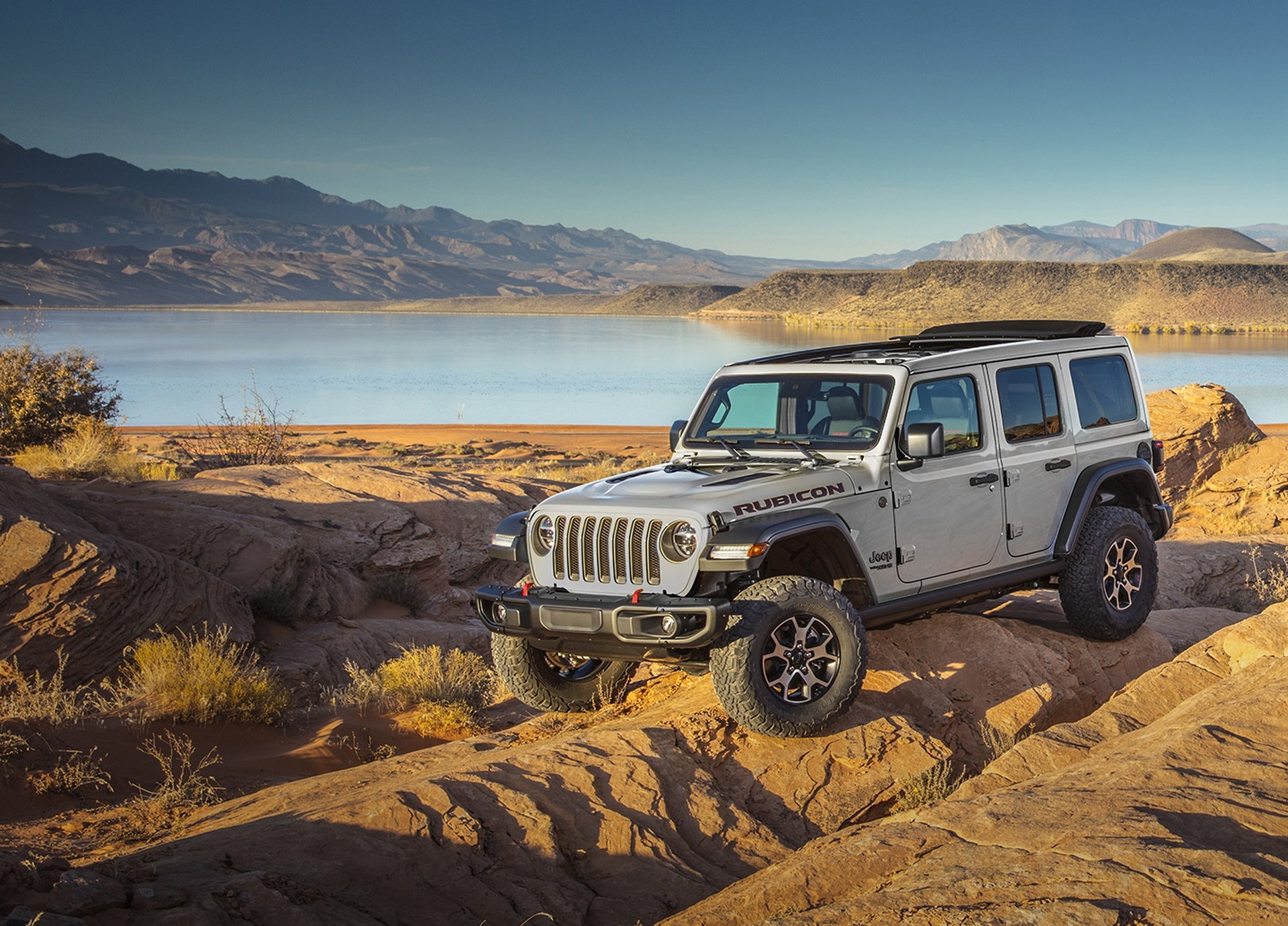
Types of Jeep Truck Kits: Finding Your Perfect Match
Jeep truck kits come in various configurations, each offering a different aesthetic and level of modification. Understanding these types is crucial for choosing the right kit for your needs:
- Bed-Only Kits (e.g., JK-to-JT Conversions): These kits typically replace the rear tub and roll bar of a JK or JL Wrangler with a new truck bed and a rear cab bulkhead, often mimicking the look of the factory Jeep Gladiator (JT). They usually require cutting the frame and body.
- Half-Cab Kits (e.g., Scrambler Style): Inspired by the classic CJ-8 Scrambler, these kits create a shorter cab with a longer bed. They often involve cutting the rear of the original tub and installing a new bulkhead and bed, providing a retro and utilitarian look.
- Full-Cab / Extended-Cab Kits: More complex conversions that might involve extending the frame and creating a larger cab area, sometimes even with small rear doors, before integrating a bed. These are less common for aftermarket kits and often lean into custom fabrication.
- "Cut-and-Weld" vs. "Bolt-On" (Relative Terms): While no kit is truly "bolt-on" without some modification, some require less extensive frame cutting and welding than others. Always verify the required fabrication for any kit.
- Material Types: Kits are commonly made from steel (durable, weldable) or fiberglass/composite (lighter, rust-proof, easier to mold complex shapes).

Key Components You’ll Find in a Jeep Truck Kit
A typical Jeep truck kit includes several critical components designed to ensure a complete and structurally sound conversion:
- Truck Bed: The most obvious component, available in various lengths and materials, designed to integrate with the Jeep’s frame and body lines.
- Rear Cab Bulkhead/Wall: This piece seals off the new cab from the bed, often incorporating a rear window. It’s crucial for weather sealing and structural integrity.
- Tailgate and Hinges: A functional tailgate that matches the bed’s design, complete with all necessary hardware.
- Inner Fender Wells/Flares: To accommodate the new bed and tire clearance.
- Body Mounts and Brackets: Specific hardware to securely attach the new bed and cab components to the existing frame.
- Lighting and Wiring Harnesses: Often includes new taillights and wiring extensions to connect to the vehicle’s electrical system.
- Fuel Filler Neck Relocation Kit: As the fuel filler often moves with the new bed.
- Hardtop/Soft Top Adapters (Optional): Some kits include specific pieces to adapt the existing hardtop or soft top to the new shorter cab.
The Conversion Process: A Step-by-Step Overview
Converting a Jeep into a truck is a significant undertaking that requires skill, patience, and the right tools. While specific steps vary by kit, the general process involves:
- Preparation and Disassembly: Remove the rear seats, interior trim, soft top/hardtop, and the entire rear body tub of the Jeep. Disconnect all wiring, fuel lines, and brake lines leading to the rear.
- Frame Modification: This is often the most critical and irreversible step. Many kits require cutting the rear section of the frame and sometimes welding in frame extensions or reinforcement plates to support the new bed. Professional welding is highly recommended for safety and structural integrity.
- Test Fit Components: Before final assembly, dry-fit all new components (bulkhead, bed, tailgate) to ensure proper alignment and fitment. This allows for adjustments before painting.
- Painting and Finishing: Once satisfied with the fit, paint the new body components to match your Jeep’s color. This is also the time for undercoating and rust prevention on any exposed frame sections.
- Installation of New Components: Securely bolt/weld the new bulkhead, bed, and tailgate to the modified frame and body.
- Wiring and Plumbing: Reconnect or extend wiring for taillights, fuel pump, and any other rear-mounted electronics. Reroute or extend fuel filler neck.
- Interior Reassembly: Install new interior trim, rear bulkhead trim, and any new seating (if applicable).
- Final Inspection: Double-check all bolts, welds, wiring, and ensure everything is secure and functional.
Important Considerations Before Buying a Jeep Truck Kit
Before diving into a truck conversion, careful planning is paramount. Here are critical factors to consider:
- Compatibility: Ensure the kit is specifically designed for your Jeep model year (e.g., JK, JKU, JL, JLU).
- Legality and Registration: This is crucial. Laws vary by state/country regarding vehicle modifications, especially frame alterations. Some jurisdictions may require an inspection, re-registration as a "truck," or even prohibit such extensive modifications. Always check your local Department of Motor Vehicles (DMV) regulations.
- Skill Level and Tools Required: This is not a beginner’s project. It requires advanced mechanical skills, bodywork experience, and often welding capabilities. Specialized tools like plasma cutters, welders, and bodywork tools will be needed. If you’re not experienced, budget for professional installation.
- Budget Beyond the Kit: Remember to factor in costs for professional installation, painting, additional parts (e.g., custom exhaust, suspension tweaks), and potential unforeseen expenses.
- Insurance and Warranty Implications: Inform your insurance provider about the modification; it might affect your policy or premiums. Extensive frame and body modifications will almost certainly void your factory warranty.
- Structural Integrity: Ensure the kit comes from a reputable manufacturer and that any frame modifications are performed correctly to maintain the vehicle’s structural integrity and safety.
- Resale Value: While unique, a highly modified vehicle may appeal to a smaller market, potentially affecting its resale value compared to a stock Jeep.
Choosing the Right Jeep Truck Kit: Practical Advice
Selecting the ideal kit involves balancing your desires with practical realities:
- Define Your Purpose: Do you need maximum hauling capacity, or is it more about the unique look? This will dictate bed length and kit type.
- Set a Realistic Budget: Kits range widely in price. Factor in all associated costs (installation, paint, accessories).
- Research Manufacturers: Look for companies with a strong reputation, good customer reviews, clear installation instructions, and responsive customer support.
- Material Preference: Steel offers robustness and is easier for custom welding, while fiberglass is lighter and resistant to rust.
- Installation Complexity: Be honest about your DIY skills. If you’re not confident with major fabrication, opt for a kit with professional installation services or factor in labor costs.
- Aesthetics: Compare different designs. Some mimic the Gladiator, others the classic Scrambler, and some offer unique modern interpretations.
Tips for a Successful Jeep Truck Conversion
- Thorough Research is Key: Read reviews, watch installation videos, and join online forums specific to Jeep conversions. Learn from others’ experiences.
- Measure Twice, Cut Once: This adage is particularly true for frame and body modifications. Precision is vital.
- Patience is a Virtue: This is not a weekend project. It will take time, especially if you’re doing it yourself. Don’t rush.
- Invest in Quality Tools: Having the right tools makes a huge difference in the quality and ease of the build.
- Professional Help for Critical Steps: If you’re not a skilled welder or bodywork expert, hire professionals for frame cutting, welding, and painting. It’s an investment in safety and finish quality.
- Test Fit Everything: Before final painting and assembly, mock up all components to identify and resolve any fitment issues.
- Don’t Skimp on Rust Prevention: Any exposed metal, especially on the frame, should be properly treated and painted to prevent rust.
Potential Challenges and Solutions
- Frame Cutting & Welding:
- Challenge: Requires specialized tools, expertise, and precision; critical for safety.
- Solution: Hire a certified welder or a reputable fabrication shop. Ensure the kit provides clear, engineered cutting templates.
- Wiring & Electronics:
- Challenge: Extending/rerouting harnesses for taillights, fuel pump, and sensors can be complex.
- Solution: Use high-quality, weather-sealed connectors. Label all wires during disassembly. Consult wiring diagrams.
- Body Panel Alignment:
- Challenge: Achieving perfect gaps and flush surfaces between the new and old body parts.
- Solution: Take your time during test fitting. Use shims and adjustable mounts where possible.
- Rust Prevention:
- Challenge: Exposed metal after cutting can quickly rust.
- Solution: Immediately prime and paint all cut edges. Apply rust-inhibiting coatings inside frame rails.
- Legal & Registration Hurdles:
- Challenge: Potential issues with vehicle classification, inspections, or legality in some areas.
- Solution: Contact your local DMV before starting the project to understand all requirements.
- Cost Overruns:
- Challenge: Unforeseen expenses for tools, additional parts, or professional labor.
- Solution: Pad your budget by 20-30% for contingencies. Get detailed quotes for professional services.
Table Price: Estimated Jeep Truck Kit Costs (Example Ranges)
Please note: These are estimated ranges for the kits themselves and do not include shipping, professional installation, painting, additional parts (e.g., custom suspension, wheels, tires), or potential labor for frame modifications. Prices vary significantly based on manufacturer, materials, and kit completeness.
| Kit Type | Main Components Typically Included | Estimated Price Range (USD) | Notes & Exclusions |
|---|---|---|---|
| Basic Bed Conversion Kit | New truck bed (fiberglass/steel), rear cab bulkhead, tailgate, basic mounting hardware. | $3,000 – $8,000 | Often requires significant frame cutting and welding. May not include interior trim, rear window, or advanced lighting. Best for DIYers comfortable with fabrication. |
| Mid-Range / "Gladiator Style" Kit | High-quality truck bed, finished rear cab bulkhead, integrated tailgate, frame extension brackets, some wiring, fuel filler relocation. | $8,000 – $15,000 | Designed to mimic factory Gladiator aesthetics. May include more refined interior components and better integration. Still likely requires professional welding/installation. |
| Premium / Half-Cab "Scrambler" Kit | Custom shorter cab section, longer bed, integrated rear window, specific hardtop/soft top adapters, advanced mounting solutions. | $15,000 – $25,000+ | Focus on specific classic or unique aesthetics. Often includes more intricate bodywork and potentially more complete interior finishes. Professional installation almost always recommended. |
| Full Conversion Kit (Less Common) | May include new body panels from mid-cab back, frame extensions, custom interior pieces, advanced lighting, and more comprehensive parts. | $25,000 – $40,000+ | These are often highly specialized or semi-custom builds. Price can escalate significantly depending on level of detail and factory-like integration. Likely requires extensive professional fabrication and paint. |
| Installation Labor (Estimated) | N/A (Highly Variable) | $3,000 – $10,000+ | Depends on complexity of kit, shop rates, and extent of frame/body modification. Can often exceed the cost of the kit itself for comprehensive builds. |
| Painting (Estimated) | N/A | $1,500 – $5,000+ | Varies based on quality of paint job (single color vs. custom, body prep required). |
Frequently Asked Questions (FAQ) About Jeep Truck Kits
Q1: Is converting my Jeep to a truck legal?
A1: This varies by state and country. Some jurisdictions have strict laws regarding frame modifications and re-registering vehicles. Always check with your local Department of Motor Vehicles (DMV) or equivalent authority before starting the conversion.
Q2: How long does a Jeep truck conversion take?
A2: If done by a professional shop, it can take 2-4 weeks. For a skilled DIY enthusiast, it can range from several weeks to a few months, depending on available time, tools, and the complexity of the kit.
Q3: Can I do the conversion myself?
A3: While some highly skilled DIYers undertake this project, it is not for beginners. It requires advanced mechanical knowledge, bodywork experience, and often professional welding skills. Incorrectly performed frame modifications can be extremely dangerous.
Q4: Does it affect the Jeep’s off-road performance?
A4: Generally, no, if done correctly. Many kits maintain or improve departure angles. Adding a bed adds weight, which might require suspension upgrades, but the core off-road capability remains. Some kits might slightly lengthen the wheelbase, affecting breakover angle.
Q5: Will a truck kit void my Jeep’s warranty?
A5: Yes, extensive modifications like a truck kit, especially those involving frame cutting, will almost certainly void your factory warranty for affected components (body, frame, possibly powertrain if related issues arise).
Q6: What is the total cost of a Jeep truck conversion?
A6: The total cost can range from $7,000 for a basic DIY conversion (kit + paint + basic tools) to $40,000+ for a premium kit with professional installation, custom paint, and additional accessories.
Q7: Are the beds functional for hauling?
A7: Absolutely. The beds are designed to be fully functional, capable of hauling various loads just like a regular pickup truck. Payload capacity will be limited by the Jeep’s original gross vehicle weight rating (GVWR).
Conclusion
A Jeep truck kit offers an exciting pathway to transform your Wrangler into a highly versatile and uniquely styled vehicle. It’s a significant project, demanding careful consideration, a realistic budget, and often, professional expertise, particularly for the critical frame modifications. However, for those willing to embark on this journey, the reward is a one-of-a-kind machine that blends the legendary off-road prowess and open-air freedom of a Jeep with the undeniable utility of a pickup truck. It’s more than just a modification; it’s a statement, an adventure, and a testament to the boundless possibilities of automotive customization.
